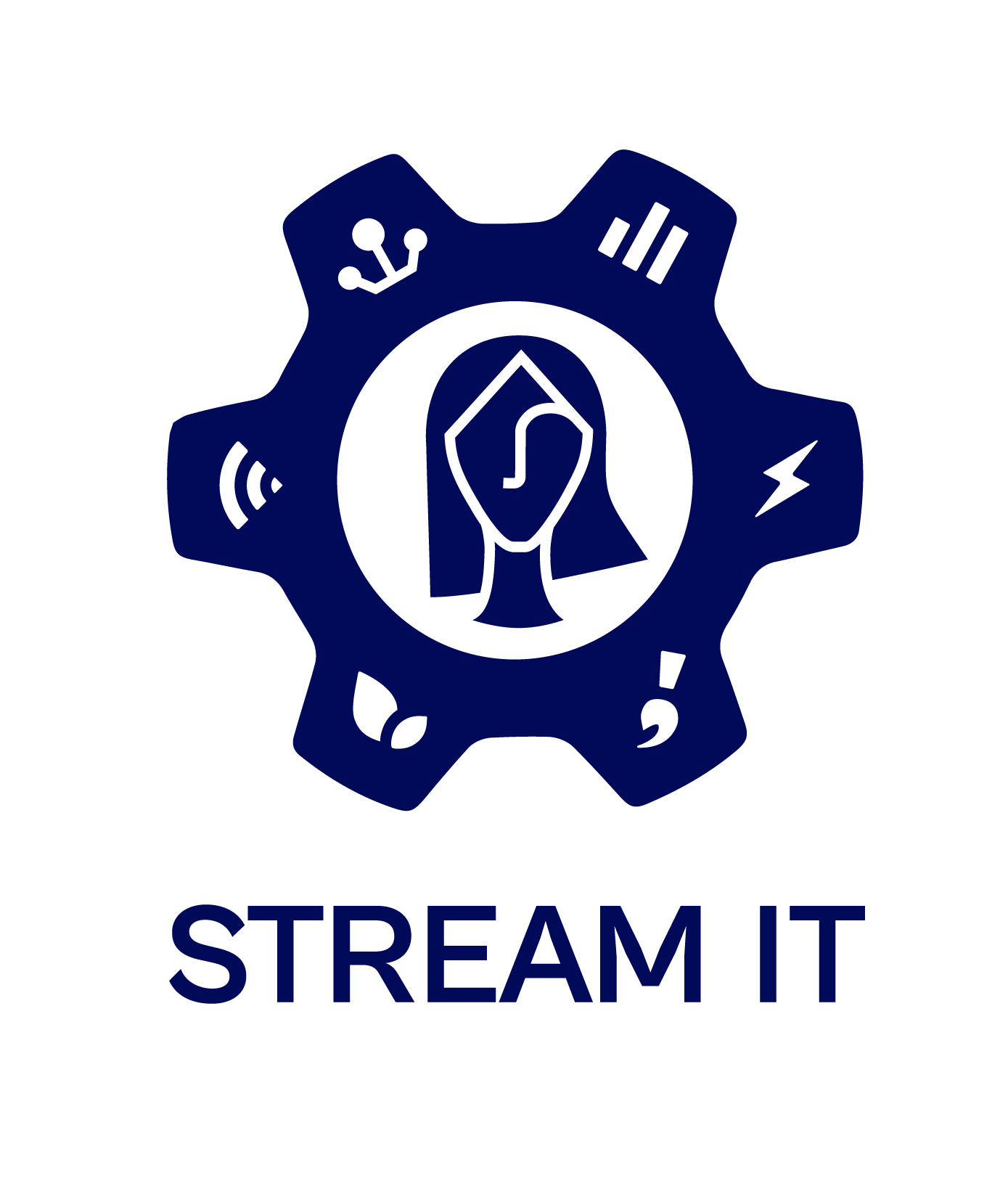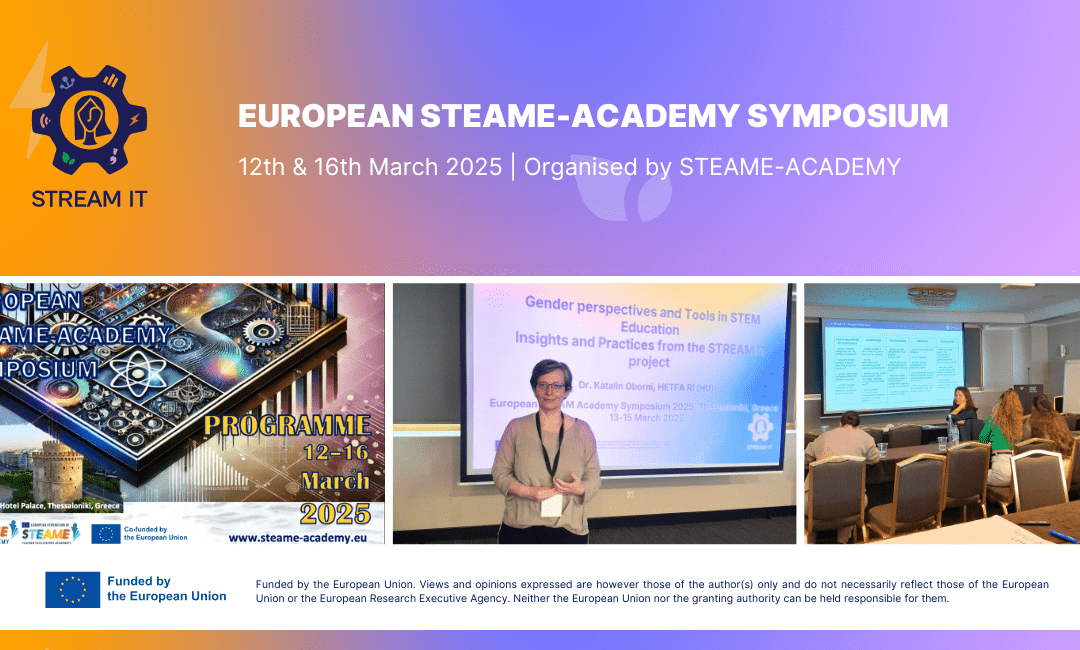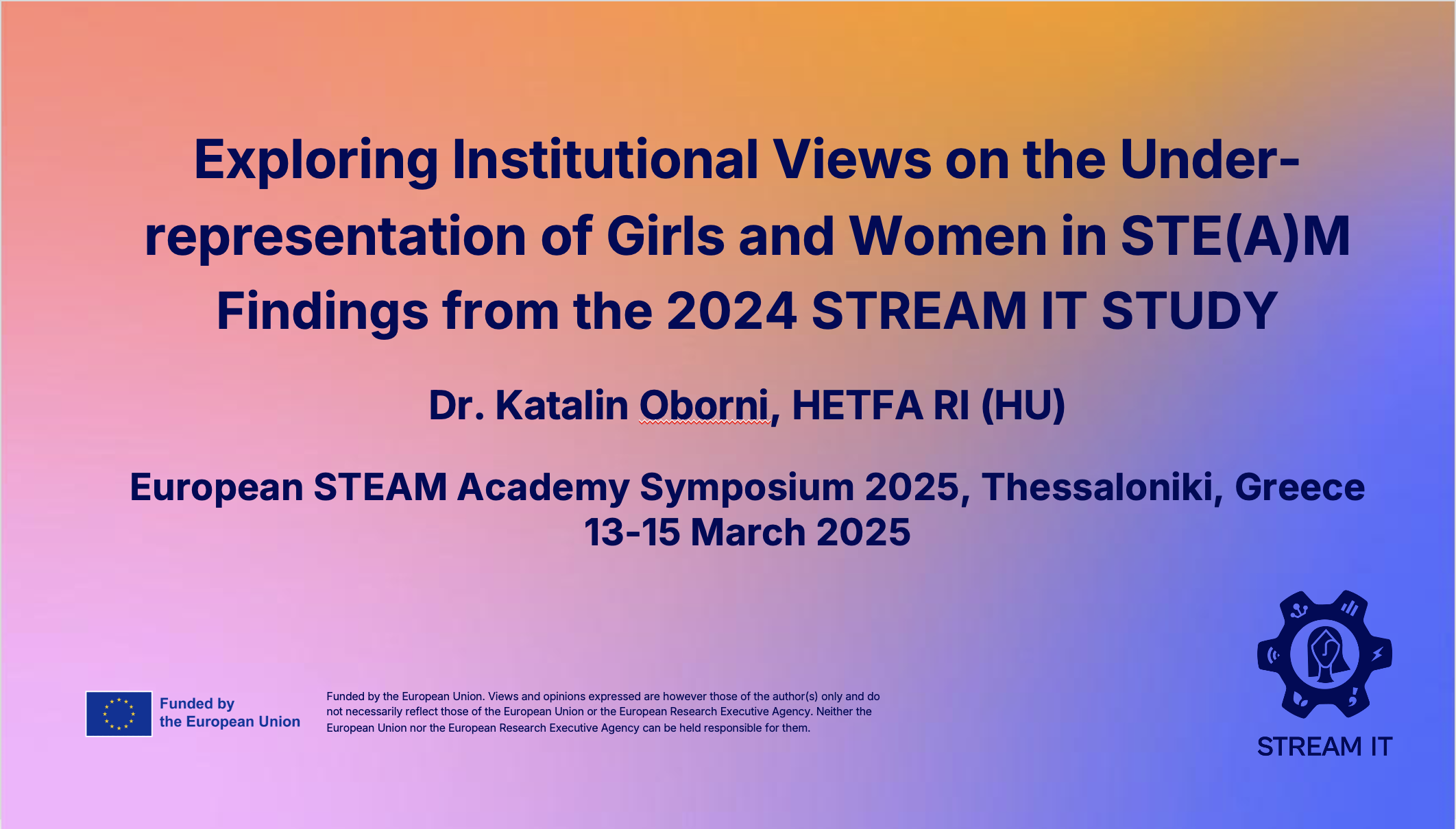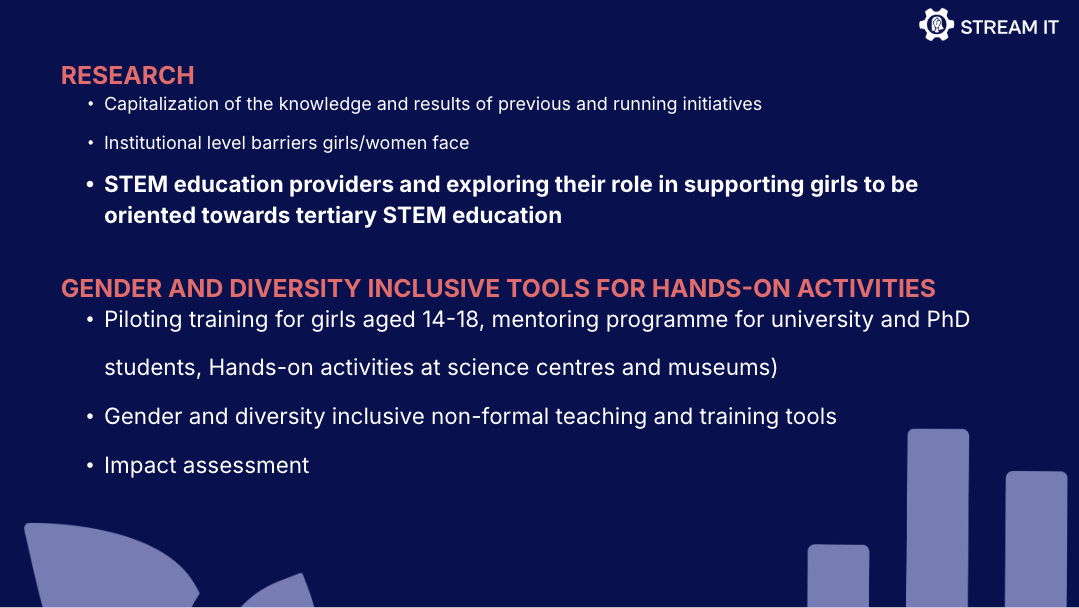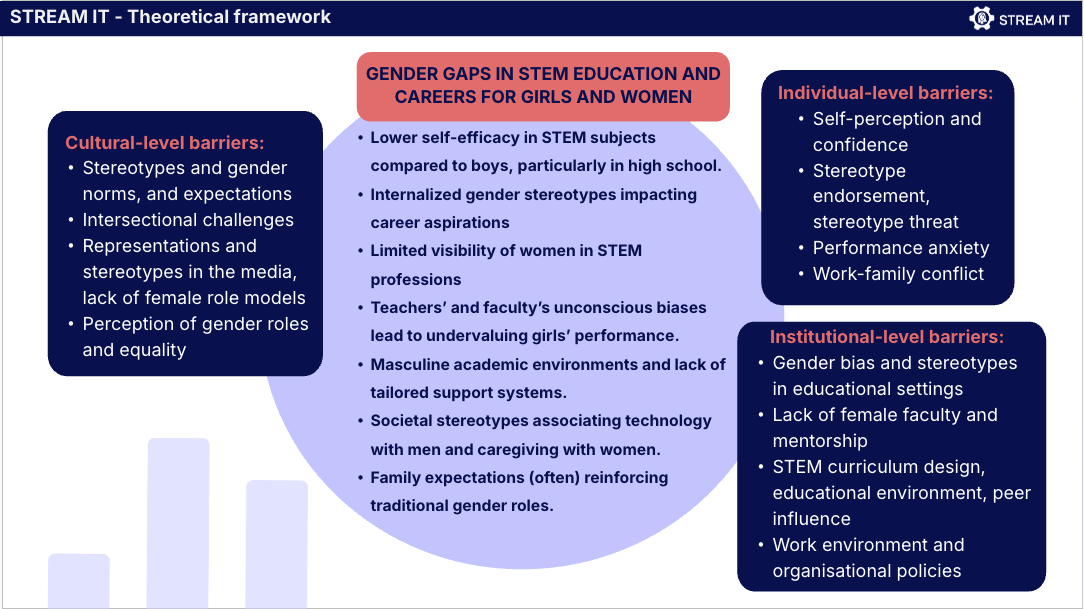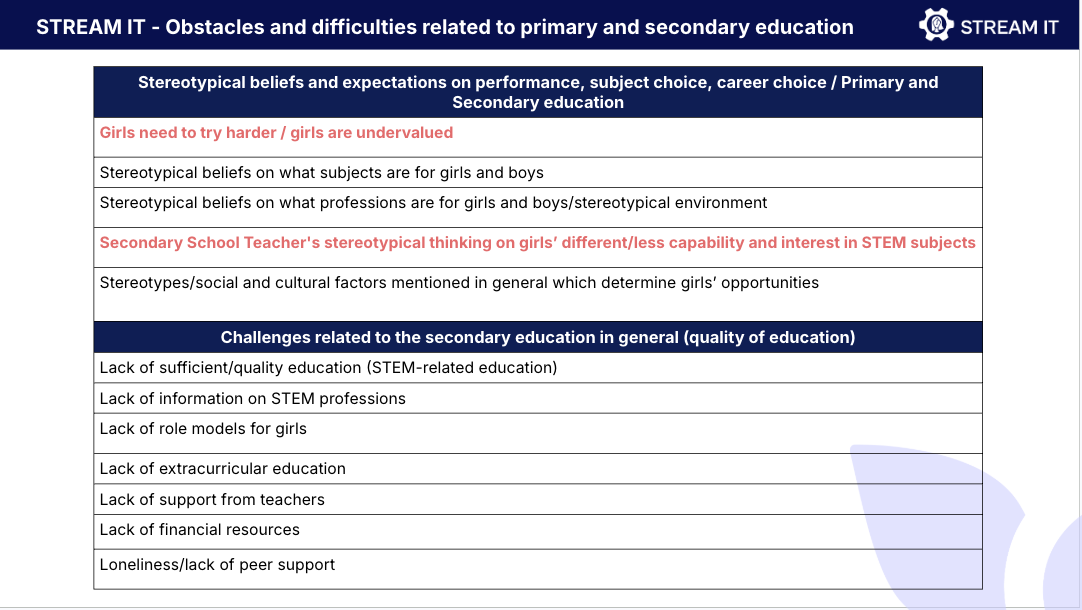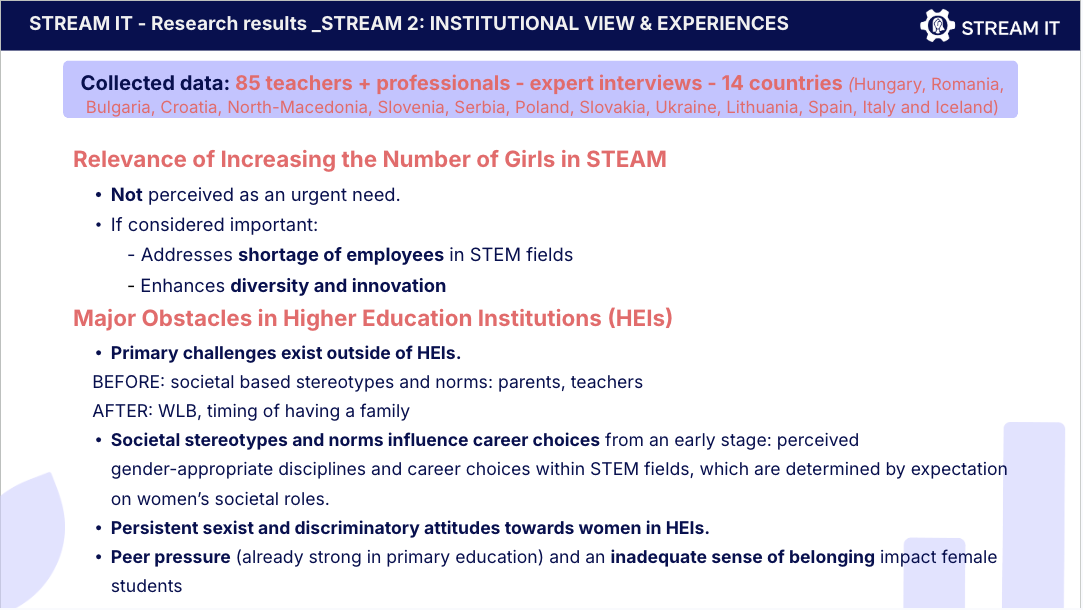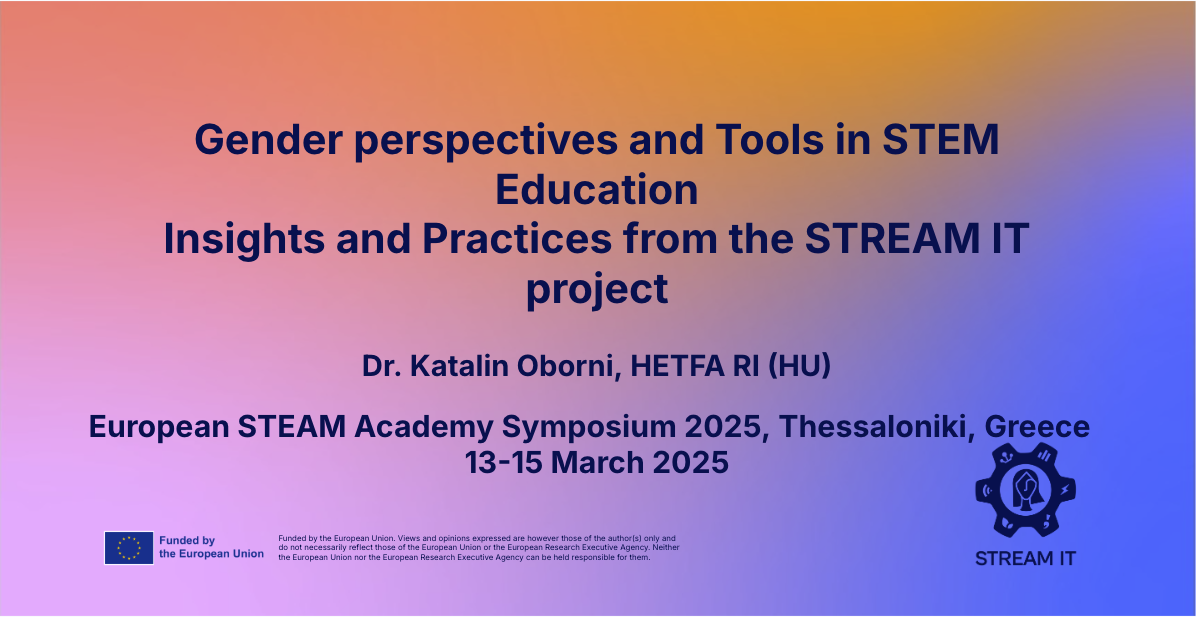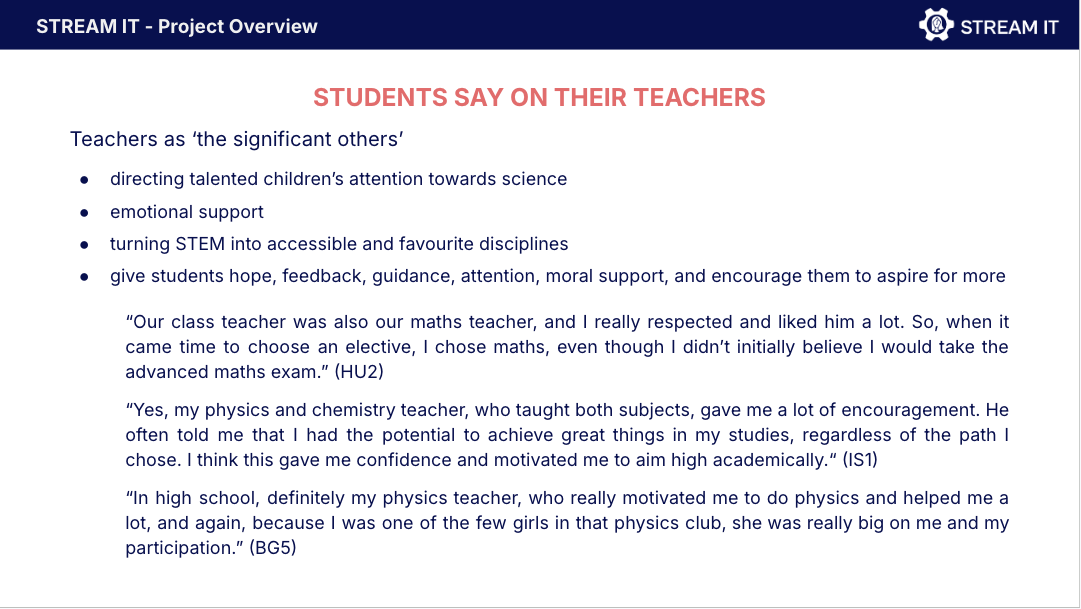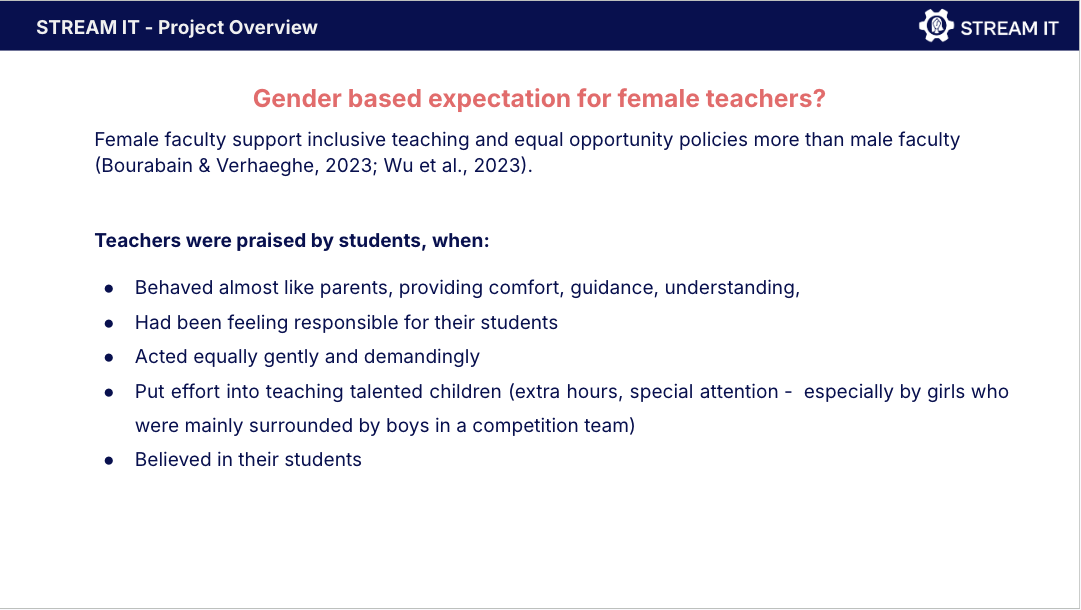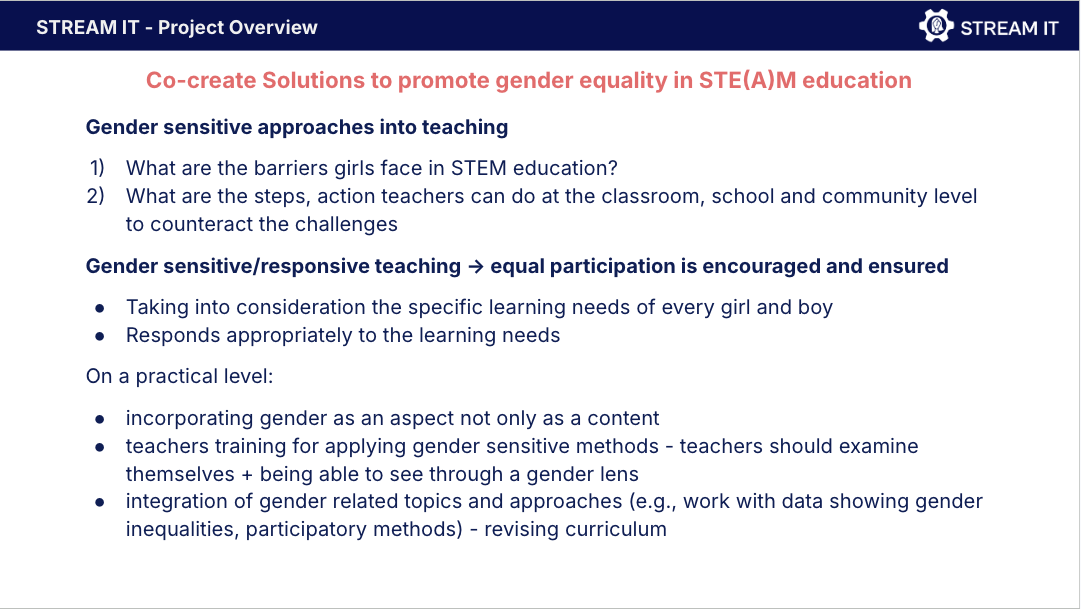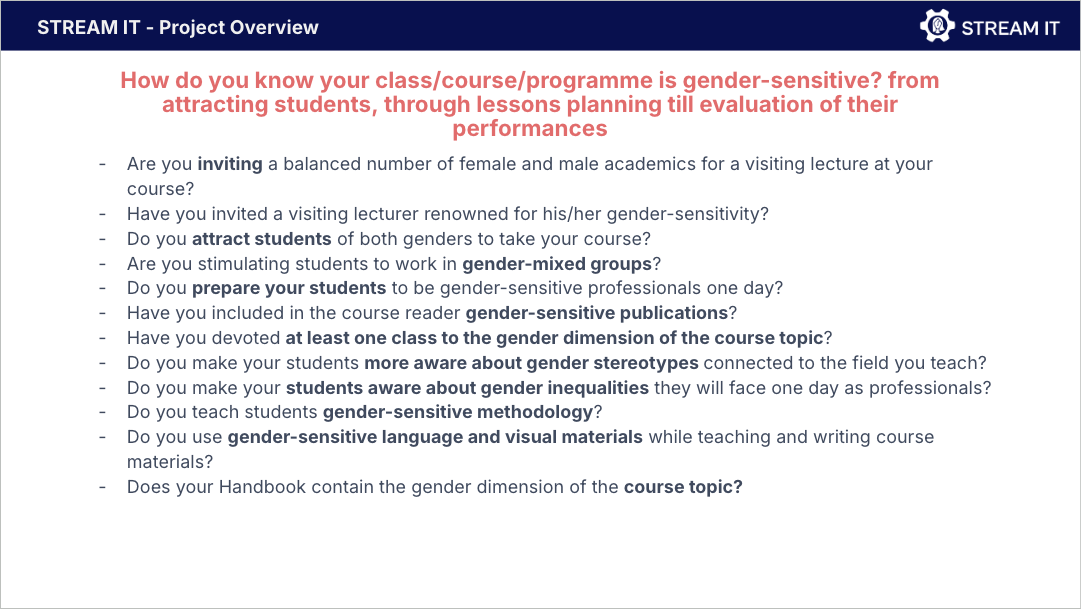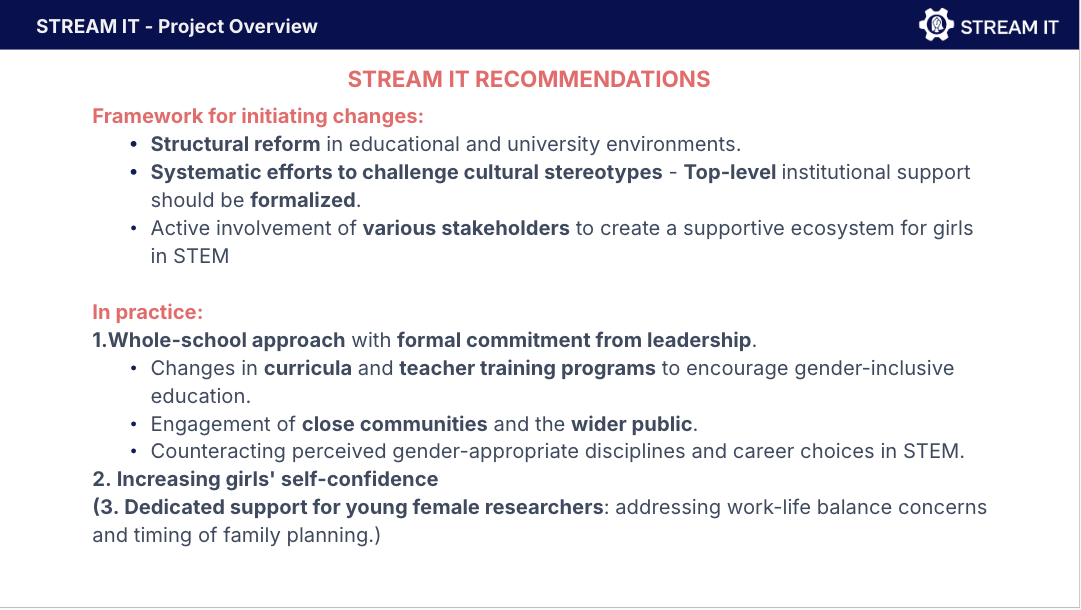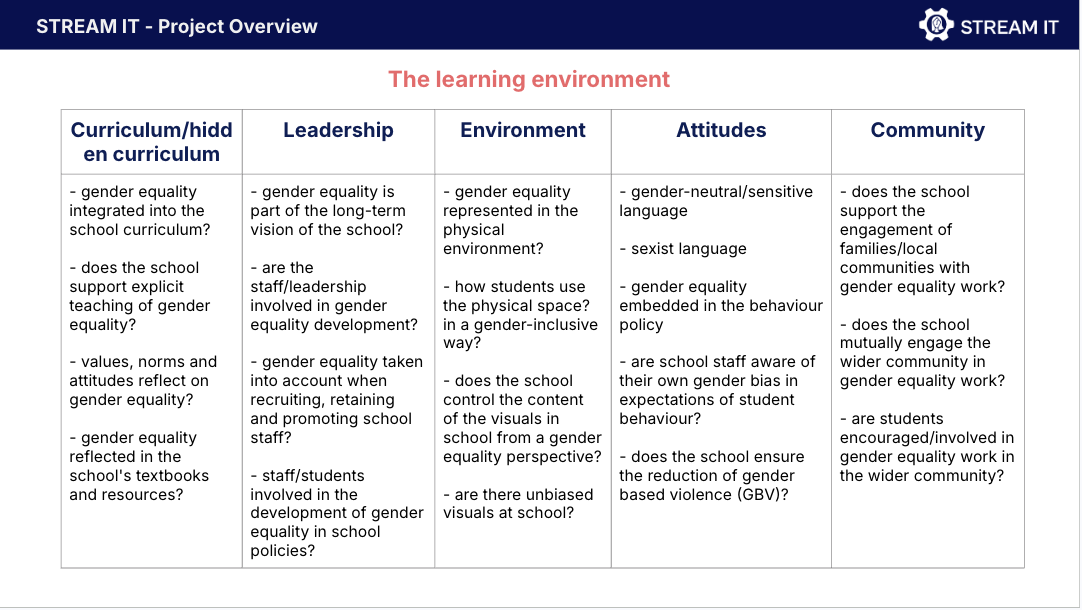The European STEAME-ACADEMY Symposium 2025, organised by the STEAME Teachers Academy project, recently provided a valuable platform for sharing knowledge and fostering collaboration in the realm of STE(A)M education.
We at STREAM IT were delighted to have our Project Coordinator, Katalin Oborni, actively participate in this important event, highlighting the aims, progress, and initial findings of our project. Katalin’s involvement included a compelling presentation and an engaging workshop, both centered around the crucial topic of gender equity within STE(A)M fields. More on the European STEAME-ACADEMY programme
Exploring institutional views on the under-representation of Girls and Women in STE(A)M: Findings from the 2024 STREAM IT Study
On March 13th, Katalin delivered a presentation titled “Exploring institutional views on the under-representation of Girls and Women in STE(A)M: Findings from the 2024 STREAM IT Study.” This session unveiled key insights derived from a comprehensive sociological study conducted in 2024 as part of the STREAM IT project.
The study delved into the current status of girls and women in STE(A)M across Europe, aiming to identify the challenges, opportunities, and necessary interventions to cultivate greater inclusion and equity in both education and career pathways. By analysing empirical data gathered from expert interviews, our research has illuminated persistent barriers hindering gender equity. These include deeply ingrained societal stereotypes, family expectations, often unconscious biases held by educators, and a lack of sufficient institutional support.
While acknowledging the progress made in gender equality within STE(A)M education, the findings underscore the various factors that continue to deter girls from pursuing and sustaining careers in these vital fields. Furthermore, the study revealed complex and diverse institutional perspectives on how to effectively increase women’s participation in STE(A)M, ranging from an emphasis on individual empowerment to the necessity of systemic reforms.
Ultimately, the presentation highlighted critical intervention points and offered valuable recommendations for educators, policymakers, and institutions striving to drive meaningful and lasting change towards gender equity in STE(A)M.
Empowering Teachers with Gender-Sensitive Tools and Practices
The intimate setting of the workshop fostered a highly interactive and engaging environment. Katalin presented the core objectives of the STREAM IT project, emphasising its commitment to equipping teachers with practical tools and effective strategies to support girls and students from disadvantaged backgrounds in overcoming the challenges they may face in STEM education.
Participating teachers actively shared their own experiences, leading to a rich dialogue about the practical integration of gender-sensitive approaches into their daily teaching practices. The session then explored the concept of a whole-school approach to improving gender equality in STEM, focusing on concrete actions teachers can take at the classroom, school, and community levels to address existing challenges.
Two key aspects were discussed in detail: community engagement and attitudes. The workshop generated several valuable recommendations on how to integrate gender perspectives into teaching and the learning environment, including:
- Increase the visibility of female role models: Invite more female guest speakers, particularly in STEAM-related fields.
- Build inclusive community connections: Organise school events that highlight the experiences of independent, working mothers to provide diverse role models.
- Address gender imbalances in leadership: Be mindful of the gender representation within the school’s board of governors and ensure women have meaningful involvement in key decision-making processes, not just event organisation.
- Promote gender-neutral language: Teachers should actively avoid using gender-biased language in the classroom.
- Ensure equitable treatment: Avoid treating girls and boys differently in classroom interactions.
- Practice specific and inclusive communication: Address students individually and avoid generalizations.
- Use inclusive terminology: Instead of terms like “mother,” consider using more inclusive language such as “guardian” or “partner.”
Foster diverse interactions: Adjust classroom seating arrangements to encourage more gender-diverse groupings.
Presentation:
Exploring institutional views on the under-representation of Girls and Women in STE(A)M: Findings from the 2024 STREAM IT Study
Workshop:
“Gender Perspectives and Tools in STEM Education: Insights and Practices from the STREAM IT Project.”
Key Takeaways from STREAM IT's Participation:
Barriers in STEAM exist: Recognising and addressing these barriers within the education system is the crucial first step towards meaningful change. Teachers are pivotal: Providing teachers with adequate training and fostering gender-awareness in their teaching practices is fundamental to creating a more equitable learning environment. Institutional support is essential: Systemic reform and robust institutional support are key drivers for achieving real and lasting change in gender representation in STE(A)M. Role models matter: Providing visible and relatable role models, alongside strong support networks, plays a significant role in inspiring girls and women to pursue and succeed in STE(A)M careers.
What's Next for STREAM IT?
Building on the momentum from the symposium and our ongoing research, STREAM IT is excited to announce the official opening of the National Inspiration Hub STEAM. This initiative, launched alongside our first webinar, aims to actively engage teachers and stakeholders in various European countries who are committed to supporting gender equality in STE(A)M education. The hub will serve as a platform for promoting innovative educational approaches and fostering a community dedicated to creating a more inclusive future for women in STE(A)M.
Stay tuned for more updates on the STREAM IT project and the activities of our National Inspiration Hubs as we continue our work towards a more gender-balanced and equitable future in STE(A)M!
